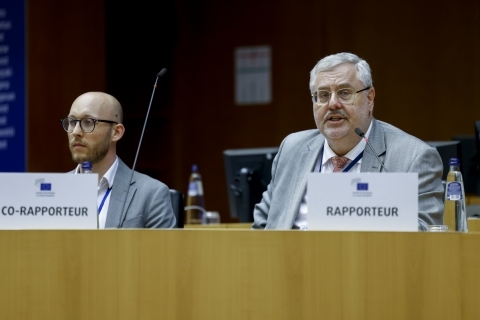European Economic
and Social Committee
Green transport must be financially acceptable and socially feasible
Long-term sustainable transport is possible, but only if people, industry and the transport sector buy into two objectives: a 90% emission reduction in the transport sector by 2050 and a commitment to using the agreed ways and means to get to the final result.
This was the message sent by the EESC opinion drafted by Stefan Back and Mateusz Szymański and adopted at the plenary session on 27 April 2023.
To achieve the objective of long-term green transport, "the transition must be attractive and realistic, and thus acceptable to citizens and businesses from three points of view: financial, social and practical," said Mr Back.
"That is the only way the transition can be actively supported by our society, otherwise the risk is not only failure, but at worst social unrest," added Mr Szymański.
More specifically, the EESC says that in order for the transition to succeed, certain conditions must be fulfilled.
First of all, businesses must feel that they are not overburdened with costs and that they will retain competitiveness, not only within but also outside the EU.
Secondly, employees must experience the transition as acceptable and be given the possibility to adapt to new working conditions in a socially acceptable manner.
Thirdly, citizens both in agglomerations and rural areas must benefit from accessibility and mobility at a reasonable cost and under good general conditions. (mp)
